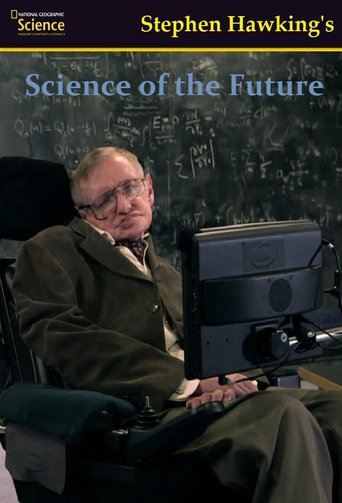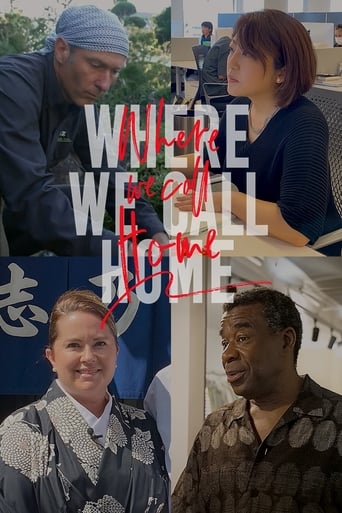RISING Season 2
With 30 Day Free Trial!
RISING
2015
Going beyond the horizon. Meet Japan's entrepreneurs whose innovative thinking is changing traditional mindsets in their various fields of work.
Watch Trailer
RISING Season 2 Full Episode Guide
As diets in Japan become increasingly Westernized, obesity and lifestyle diseases are on the rise. Average daily intake of fruit and vegetables is well below the recommended minimum, and falling year by year. Ryozo Kawagishi is the CEO of KOMPEITO, a business changing attitudes to fresh produce by providing fruit and veg for office workers to snack on during break times. And with its update on traditional Japanese medicine, this service is also providing a boost for farmers nationwide
To rent an apartment in Japan, tenants have long needed to name a guarantor - usually Japanese, with a steady income. But this rule, intended to safeguard owners against non-payment of rent, can exclude non-Japanese from the housing market. Hiroyuki Goto runs a firm striving to promote Japan's internationalization with a guarantor service for international students, and multilingual support that helps foreign clients navigate complex garbage-disposal rules and other potential difficulties.
In Switzerland this fall, athletes and the technologies behind their prosthetic limbs were put to the test at the world's first Cybathlon. The competition attracted researchers from around the world. Masahiro Kasuya brings 2 innovative technologies: a prosthetic hand that allows control of each finger individually and a technology that allows people paralyzed from the waist down to pedal a bicycle. Meet the young researcher who hopes to eliminate physical barriers from around the world.
At-home medical care. But unlike traditional on-call emergency care, this service sees doctors and nurses visit patients regularly, as part of a treatment plan. With some 26% of Japan's population now aged 65 or over, more and more elderly patients are limited to their homes. Physician Shinsuke Muto is revolutionizing home health care, with clinics whose dispatch staff utilizes communications technology to optimize efficiency, and similar schemes in tsunami-hit Ishinomaki and aging Singapore.
Toshihiro Nakamura founded a social business providing simple, durable, affordable technology to developing countries. The goal is to improve lifestyles while boosting both productivity and income.
In Bangkok, Thailand, a Japanese-style dry cleaning and laundry service is currently attracting widespread attention. Driving this success are the efforts of local factory manager Makoto Seino, and sales representative Toshiyuki Abe. The firm's superlative service combines Japanese methods with skilled local operators and the latest machinery. We follow 2 men embracing a foreign culture to promote Japanese-style cleanliness overseas.
With many children across Japan unable to find a place in nursery daycare, Hiroki Komazaki, CEO of NPO Florence, is leading efforts to meet the childcare needs of working families. From 2010, using empty urban properties, he launched daycare centers with space for 10 kids, successfully pushing for nationwide licensing for nurseries with fewer than 20 places. His other innovations include Japan's first home daycare service for sick children, and services for kids with disabilities.
Orihime is a desktop avatar robot that can be controlled remotely from anywhere in the world. Its creator, Kentaro Yoshifuji was inspired by his own childhood experiences of suffering from loneliness to produce a robot to connect those unable, through physical illness or anxiety, to leave their homes and interact with others. Unlike AI-equipped robots, Orihime is human-controlled, allowing users to participate by proxy at conferences or school, with eye-tracking controls under development for those with full paralysis.
In recent years, economic pressures have seen numerous Japanese watch brands send the production of their devices overseas, forcing the closure of domestic plants that had long upheld Japan's watchmaking tradition. To preserve this heritage, Hiromitsu Endo enlisted plants that had lost major contracts to launch a brand rooted in the appeal of the "Made in Japan" mark. With some 6,000 custom designs, and the creative use of traditional crafts, the brand is winning many fans in Japan and overseas.
To many in Japan, industrial waste disposal carries an image tarnished by practices such as illegal dumping. Since inheriting her family recycling business aged 30, Noriko Ishizaka has overseen reforms intended to transform the firm's reputation. A new eco-friendly plant, an employee training drive, superb recycling technology and a commitment to regreening have won praise in Japan and overseas, and earned the trust of local residents. We follow this company's change from pariah to paragon.
With Japan's population aging, around 2 million adults now use diapers, and incontinence management is a major burden for many elderly citizens and their carers. We follow the work of professional carer Yoshimi Ui, who is developing a bed sheet equipped with odor sensors and wireless technology to automatically monitor discharge within a patient's diaper. By relaying regular updates to carers, this revolutionary device removes the need to regularly check a patient's undergarments directly.
As Japanese tea grows in popularity around the world, more and more people from overseas are being drawn to a plantation on the outskirts of Kyoto. From a base in Wazuka, an area famed for high-quality ujicha tea, Akihiro Kita runs a business that sells to 65 countries around the world. The firm uses online content, seminars, and a 3-month intern program that offers the chance to get hands-on experience of tea-picking and tasting to spread the appeal of Japanese tea around the world.
When the Olympic games come to Tokyo in 2020, robot taxis may already be a common sight. Led by Hisashi Taniguchi, robotics venture company ZMP caused a major stir by announcing a collaboration with the company DeNA to bring these futuristic vehicles to market. Taniguchi is also involved in schemes featuring self-piloting drones and robot carts designed to reduce injuries in the shipping industry. We follow his efforts to promote safe, fun, convenient lifestyles through robotics.
Japan's corporate culture has a reputation for discouraging independent thinking. Daichi Konuma created International Corporate Volunteering Program. It connects workers from some of Japan's most recognizable companies with over 200 NGO's in 8 emerging countries in Asia. Participants use their professional skills to develop solutions to that country's needs. By fusing global corporate social responsibility with human resources development, Konuma is pioneering a new field of opportunities.
With mottainai, the Japanese word for "waste", gaining currency around the world, one Japanese entrepreneur is using the term as the inspiration for an innovative web-based business. Akiko Nishiura runs a website which finds uses for dormant urban spaces, such as residential driveways, the entrance spaces of buildings, and shops outside of business hours. By utilizing these wasted spaces, Nishiura seeks to boost the Japanese economy with a firm that deals in untapped potential.
Kohei Hayamizu is the founder of Soundpower, a company trying to solve the energy problems facing the global community through entirely novel means. His kinetic energy generation system converts the vibrations from everyday actions like walking and driving into electricity, for the ultimate in locally produced, locally consumed clean energy. Recent projects harness this technology to boost security both in Japan and overseas. Meet a man striving to help create an energy-harvesting society.
In 2010, Toru Tokushige founded Terra Motors with the goal of being largest producer of two and three-wheeled electric vehicles in the world. Operating from a tiny office, he managed to capture the Japanese market after only 2 years and is now expanding into countries throughout Asia where vehicle exhaust is a major environmental problem. Tokushige personally leads sales team around the world, leading to skyrocketed sales in Nepal. Meet the man behind this "mega venture".
Hirofumi Seo uses cutting-edge computer graphics to visualize the most complex medical data. After securing the University of Tokyo President's Grand Award for his work as an expert forensic witness, elucidating exact details of victims' wounds, in 2015 he won a category prize at leading CGI conference SICGRAPH, for his digital recreation of the human heart. Seo now seeks to revolutionize clinical practice with a virtual surgery simulator to train physicians to perform tricky liver operations.
Yuya Nakamura is President and CEO of a company currently drawing attention from around the world through the development of compact satellites. The advantage of the firm's microsatellites is their low cost, with the process from design through to launch said to require only one tenth of the budget typically needed for the larger devices familiar in years gone by. Nakamura's company has breathed fresh life into an industry that was once the preserve of state-funded projects.
A groundbreaking meals-on-wheels service provides the sick with bento meals tailored to their individual medical requirements by trained dieticians, who also offer over-the-phone nutritional advice. We meet Kosuke Abe, who came up with this business model that moves dieticians from a supporting role to center stage. Driven by the motto "food comes first", he is committed to demonstrating how nutrition can improve a patient's condition before the need for medical treatment.
Free Trial Channels
Seasons











































